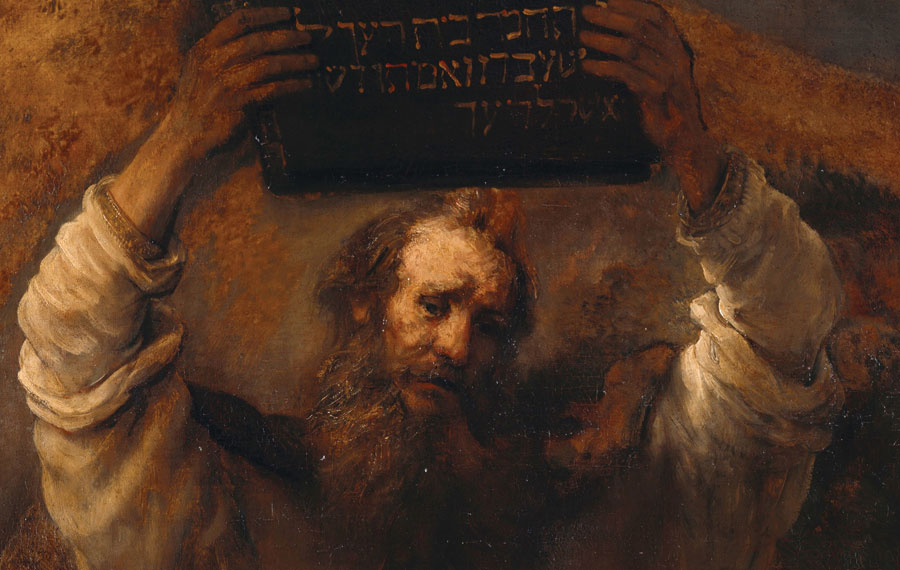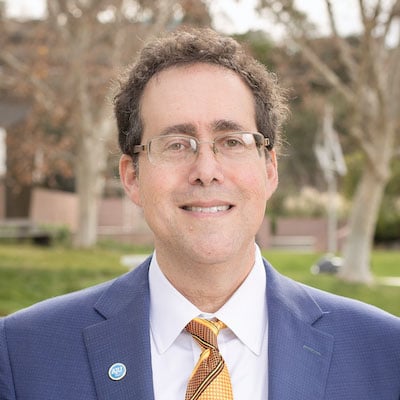
Every Jew knows about Passover, Judaism’s most widely observed holiday of freedom. Many have discovered the joys of Sukkot, the beautiful festival of booths. But there is a third pilgrimage festival that also comes to us from antiquity and the Torah itself that is far less observed and known.
Early in the summer, seven weeks after Passover, the festival of Shavuot celebrates the harvest of the barley crop and more important, the gift of Torah. For two days, we devote thought to mindful gratitude that we have a heritage of wisdom, compassion and celebration. Indulging in dairy delicacies, late-night learning, and communal prayer and feasting are designed to invite us into a renewed celebration of the Torah, with its grand tale of Creation, inspired by God’s desire to love, and the Exodus, inspired by God’s yearning for justice and dignity.
We read our way into purpose. Ancient Hebrew words reveal to us a cosmos that asks everything of us: commitment, passion, engagement and endless love for one another. These are the inspirations of Shavuot, and its representative hero is none other than Moshe Rabbenu. Moses. The rabbi of our entire people and of every person with whom his message resonates.
One Jewish pathway toward the divine is the texting of revelation. We perceive the Blessing One not only through the ongoing process of creation, but also — perhaps more intensely — through the distillation of human listening into words. Scripture — Hebrew Scripture in particular — is an extraordinary cumulative series of engagement, as generation after generation of priests, prophets and sages listened with inner attentiveness and distilled divine bounty (shefa) into words.
Those words coalesced into stories and laws, which disparate schools of ancient Israelites compiled and wove together into a sturdy tapestry of Torah across millennia of collaborative efforts. Jews believe that when we join that process of attentive listening, straining to hear the Living Voice among the words of Scripture and aided by the reverberations of our own attentive soul echoes, we, too, can harvest unprecedented Torah anew.
We stand again at Sinai each time we draw new Torah into the world. In that sense, Torah is both a product (a collection of books) and a process (the act of distilling God’s presence/will/invitation into words). Judaism uniquely portrays the divine as a teacher and paradise as a school. Our continuing reading, learning and commenting splashes an ongoing cascade of Torah into the world — a fountain of life.
We have been harvesting Torah from the moment of our birth as a nation. Great medieval sage Rabbi Saadya Gaon teaches the Jews are a people by virtue of Torah. We tell the tale of our emergence as a people in response to the bounty of God’s outpouring, and through the inspired gift of the prophetic insight of Moshe Rabbenu — Moses, our teacher.
“Our continuing reading, learning and commenting splashes an ongoing cascade of Torah into the world — a fountain of life.”
Moses was great in a way few are great. Having been raised among the abusive power and ostentatious wealth of Pharaoh, he nevertheless identified with outcast Hebrew slaves. Fleeing the deadening trap of court and caste, Moses found a freedom surpassing imagination in the wilderness — a voice calling him to mobilize the people for freedom.
From the start, the Hebrew mind has heard the Compassionate in a call for human liberation, justice and empathy. It was God working in/with/through Moses who gave us hope that we might break the chains of generations of habit and hurt, and who forced us to surpass ourselves and march into the unknown promise. It was God in/with/through Moses who stood with us at Mount Sinai and launched the process of Torah that has nourished us for the past 3,000 years.
In a very real sense, that Torah is the Torah of Moses. It is a book that powerfully locates the service of God in an expanding ethical circle: first, a couple, then a family, a tribe, a people, then humanity, a planet and finally, a cosmos. God and Moses gave us the only real universalism. It is the kind that honors particularity and celebrates diversity. It was God working in/with/through Moses who insisted the fruit of faith is moral rigor, persistent love and abiding justice: “You shall love your fellow as yourself”; “You shall love the stranger”; “You shall lift the burden of your neighbor.”
Of course, no one can live forever at the base of a thundering mountain; we cannot remain on a peak in direct communion with the sublime. At some point, we all return to life as it is lived, to imperfect humanity and to societies in need of our service, our vision and our work. To survive in the world, an ancient way of life and philosophy must ford ways to thrive in reality. For Judaism, that mode of survival has been the cultures of Jewish people in every era.
We celebrate those cultures, all outpourings of Torah in every age, as we delight in the Torah and recommit to building communities of study, practice and goodness.
Rabbi Bradley Shavit Artson is the Abner & Roslyn Goldstine Dean’s Chair and professor of philosophy at the Ziegler School of Rabbinic Studies and vice president of American Jewish University. He is also the dean of the Zacharias Frankel School at the University of Potsdam in Germany, training Masorti/Conservative rabbis for Europe.


































 More news and opinions than at a Shabbat dinner, right in your inbox.
More news and opinions than at a Shabbat dinner, right in your inbox.